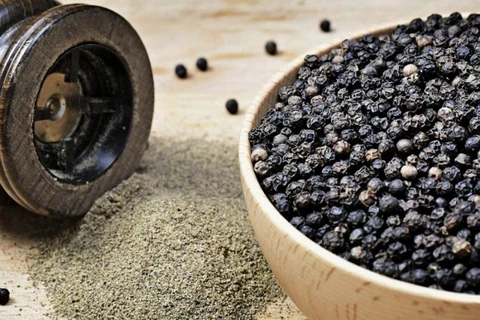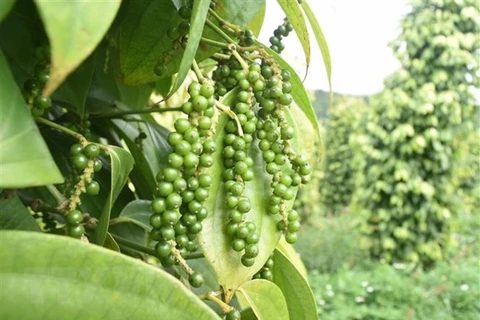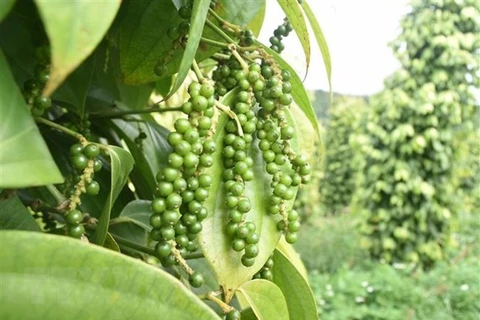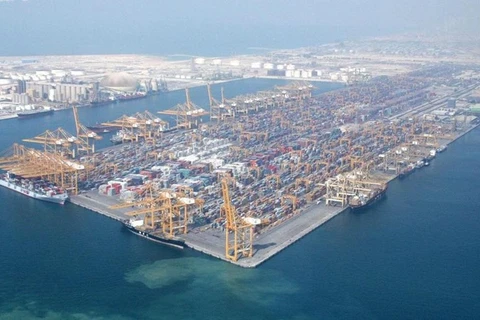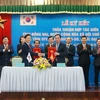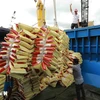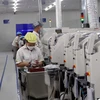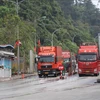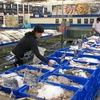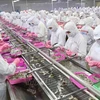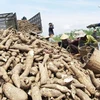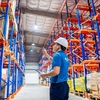Hanoi (VNA) – Following sustainable development will help Vietnamese pepper further enter the EU where more and more consumers ask for certificates that prove the products’s sustainability, an insider has said.
Chairwomen of Vietnam Pepper Association Hoang Thi Lien said that under the EU-Vietnam Free Trade Agreement (EVFTA), taxes for pepper and spices will fall to 0%, bringing about oppotunities for Vietnam to export pepper to the bloc.
Imports to the EU are usually deep-processed and high value-added.
Meanwhile, in the first six months of this year, Vietnam exported over 4,300 tonnes of pepper to the EU while the country’s total pepper exports reached 153,000 tonnes worth 486 million USD.
To take advantage of the EVFTA and further penetrate the EU market, Vietnamese pepper firms should apply sustainable development and better meet the requirements of the EU market, according to experts.
The EU also continuously warns about pesticide residues and increases the frequency of inspection over the maximum residue levels (MRLs) for food in general and Vietnamese spices in particular.
According to the Vietnam Pepper Association, the EU has issued over 500 criteria on MRLs and tends to have more requirements which are stricter and stricter.
So, the association calls on parties in supply chains including farmers, enterprises, associations, and State management agencies to join hands in increasing Vietnamese pepper’s competitiveness in the world market.
Enterprises are suggested to improve processing facilities and production processes and diversify products.
They also need to update market information including those on tax tariffs, quarantine requirements, food safety, technical barrier, rules of origin, and green growth criteria.
Lien said that in the whole value chain, risk management must be taken into account while origin traceability and product labeling must ensure transparency and accountability./.

